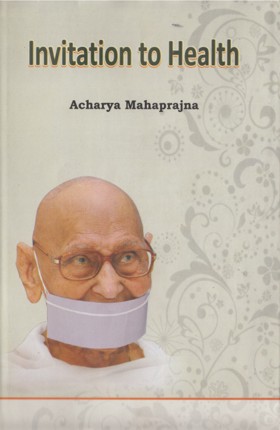Question to ponder
Ours is a world of mixture. Words are of three types— prime (rūḍha), composite (yogika) and mixed (miśra). Human thought also is not of one type, opinions also are not of one type. Something is real and something is not real. There is something which gets established as unreal real. Its example is the religious sect by the name Hindu. Two sects were made to stand facing each other—one is Hindu and the other Muslim. They became established and accepted as well. But is there any sect by the name Hindu? If such sect exits, then from which time it exists? Who is its founder? Is there any mention of the Hindu sect in any expository book? If it is not there then how it got acceptance?
Hindu is not a sect
Hindu is not related to any sect. Its relation is with society, culture, nationality or Indian-ness. In ancient India, there were two prevalent streams—Dravida culture and Aryan culture. In later times their changed names were— Sramaṇa culture and Brāhmaṇa culture. Jaina, Ajivaka, Bauddha, Samkhya, Tāpasa, Parivrājaka etc. were the sects under Sramaṇa culture. Mimāmsaka, Naiyāyika, Vaiśeṣika etc. were sects under Brāhmaṇa culture. Among these sects there used to be mutual conflicts but their Indian-ness was never questioned. Even though they were divided from sectarian point of view, they were indivisible from the point of view of Indian-ness.
Are Jains Hindus?
By regarding Hindu as a sect, we have put a question mark on Indian-ness or nationality. Today the followers of Vaidya dharma take pride in calling themselves as Hindu. Buddhists and Sikhs do not regard themselves as Hindu. Jains regard themselves as Hindu and do not regard themselves as Hindu also. One learned scholar of Poona asked Acharya Tulsi—Are Jains Hindu or not? Acharyashri gave its answer from relativistic point of view. The revered Acharya said, 'If Hindu means Vedika sect then Jain is not a Hindu and if Hindu means Indian-ness or nationality then Jain is a Hindu. Being a follower of Islam Muslim sect has independent existence, but so far as there is the question of nationality are the Muslims not Hindu (i.e. belonging to Hindustan)! In China, there are followers of Buddhism, Confucianism etc. and followers of Islam also are there, but from the point of view of nationality there is seen no difference between remaining Chinese and followers of Islam.
Question is that of nationality
In India, how many mountains, chasms, entrenchments are there in the gap between the two words—Hindu and Muslim (Musalmana). Nationality is also divided into number one and number two. It is not impossible that in the mind of Muslim there is another mental image of his nationality, and Hindus are also regarding them to be second class citizens. This situation came into existence because Hindu was made a sect. In fact, Hindu is not a sect, it is a nationality. The part of land marked by Sindhu River is Hindu nation. An inhabitant of this land, whatever is his sect, he is to be called Hindu. Vedic, Jain, Buddhist, Paris (followers of Zoroastrianism), Sikh, Christian, Muslim, - these are all sects. Sect is related with respective individual religious beliefs. To motherland or nationality, it has no relation.
New mentality
The stream of politics has produced a new mentality. Every sect has entertained an imagination of independent nation or autonomous rule for itself. If this mentality takes a real form, then no big nation can be imagined. This imagination becomes real if India of today is divided into more than forty parts. Will it be beneficial for the nation? Does a big power not become weak in getting divided into parts? Earlier India was divided into small-small parts, even then in a small state there existed many sects. At that time, sectarian conflicts were more. Sometimes in the despotic rule of a king the existence of sects was in danger. In democracy, total situation has changed. Now no sect has any danger. In the secular state, every sect has opportunity to develop it. If we dive deep into this thought the problem is not that of sect, the problem is that of the leaders of the sect. Their ambition is becoming a problem. In Yaman there is Muslim rule. One lakh Hindus are also there. Between Hindus and Muslims there is no clash, no competition and no conflict there. Why this conflict in Indian Sub-continent? The reason is that here Hindu is regarded as a sect and between two sects the idea of opposition became stable and fixed. There seems to be no solution of this problem without associating Hindu with society or nationality.
 Acharya Mahaprajna
Acharya Mahaprajna
